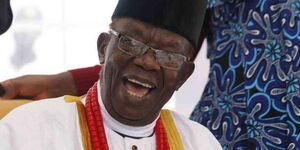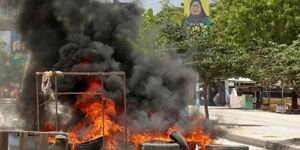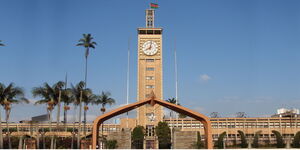The Atlantic Council, an American Think Tank focusing on international affairs on Tuesday advised the Kenyan government to pursue debt restructuring describing it as the most viable way to solve Kenya's economic crisis.
In a bulletin evaluating Kenya's current economic situation, the Council observed that Kenya's slide into negative economic territory had been predictable for a long time based on the decisions taken by the current and former government.
According to the document, the country remains in a financial hole that the government will struggle to get the country out of.
Based on this line of thought, the think tank categorically stated that Kenya should make it a priority to renegotiate with its lenders as the first step towards recovery.
“With interest payments accounting for more than a quarter of total revenue, the Kenyan government may decide to seek a debt restructuring. This is not something the IMF could impose on Kenya unless it judged that public debt was unsustainable," the Council stated in the bulletin.
Further, the AC opined that given Kenya’s past efforts to repay the debt, the IMF would not force Kenya into unbearable payment terms, however, the Kenyan government was warned that this may call for stringent measures.
“It would have been cynical on the part of IMF shareholders, who routinely call for strong ownership from program countries, to force Kenya into an unwanted debt operation—as long as there was still a realistic chance of avoiding it. This now looks less assured, and it may be the only avenue left for the government,” stated the AC
Following an analysis of the country’s economic position, the AC also recommended other several measures, such as expenditure compression and seeking debt relief from the Chinese Exim Bank which is Kenya’s biggest creditor.
However, the option of cutting expenditure was deemed unviable in the long run as it would curtail development and political activities.
Notably, the option to request debt relief from China was termed as potentially lengthy and would possibly result in Kenya’s denial of funding for an extended period.
While commenting on how Kenya found itself in the current position, the Council described the entire situation as a homemade problem.
The IMF Question
In the bulletin, the Council dismissed the argument that the International Monetary Fund (IMF) was the main villain in Kenya's economic woes.
"One of the IMF’s tasks is indeed to deflect some of the political blame from a government that has committed to fiscal adjustment measures and faces public opposition," the bulletin reads in part.
The Council attributed the genesis of Kenya's economic problems to uncalculated ambitions by Kenya's past and current leaders especially the Jubilee Administration led by former President Uhuru Kenyatta.
"Kenya was looking for ways to leverage its “frontier market” status into higher growth via debt-financed investments and infrastructure projects," the think tank referenced.












